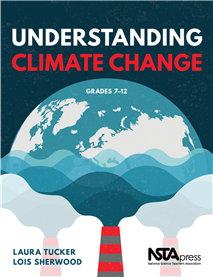NSTA Press
Fact or phony? Scientifically evaluating data
By Claire Reinburg
Posted on 2020-02-13
From information about the novel coronavirus to viral posts on social media, it can be a challenge to sort out fact from fiction in what we read on the web. Students face this challenge in their daily reading, too, and these featured resources can help your students learn ways to think critically about data and information they encounter. Share with us in the comments the resources you find most helpful for supporting students’ critical thinking skills.
Just the facts
NSTA Press authors Laura Tucker and Lois Sherwood provide an engaging lesson in “Fact or Phony? Scientifically Evaluating Data” from Understanding Climate Change, Grades 7–12 that will help your students develop their abilities to evaluate information about climate change. Students explore a purely fictional web page cleverly designed as factual and are challenged to consider whether the “Pacific Northwest tree octopus” is, in fact, in danger of extinction due to the effects of climate change. By reviewing data and evaluating their validity as well as using reputable sources of data, students practice key methods to sort out fact from phony. Also check out Steve Inskeep’s NPR piece “A Finder’s Guide to Facts,” which suggests quick questions to ponder when evaluating news stories, such as “Is the story so outrageous you can’t believe it?” and “Who is the news source, anyway?”
Discussing the novel coronavirus in science class
NSTA stepped up this week to provide teachers with a classroom lesson centered on the novel coronavirus that originated in Wuhan province in China. William Reed created this secondary lesson designed to engage students in a discussion and exploration of what we know and still need to learn about this public health event. For additional resources on viruses and how to uncover what your students know or think they know about viruses and infectious diseases, download Page Keeley’s formative assessment probes “The Virus Debate” (from Uncovering Student Ideas in Life Science, Volume 1) and “Catching a Cold” (from Uncovering Student Ideas in Science, Volume 4). Explore all the popular formative assessment tools in Keeley’s Uncovering Student Ideas in Science series.
Win a bundle of NSTA Press books in February
Enter to win a bundle of books of your choice this month during NSTA Press’s “I Love Science Book-Bundle Giveaway.” Between now and February 28, 2020, enter the book-bundle giveaway that features elementary,middle, and high school collections of 10 resources each. All you need to do is tell us what you love about NSTA Press books and select which bundle you’d like to win. Three winners will be selected each week over the course of the three-week campaign. Best of luck to all who enter!
Disclaimer: The views expressed in this blog post are those of the author(s) and do not necessarily reflect the official position of the National Science Teaching Association (NSTA).




